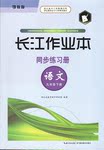题目内容
With limited pocket money in hand,many Chinese college students are increasingly opting to live life “low cost”.One way to save money is team?buying.Online team?buying offers huge discounts and becomes popular on campus.
Li Jing,a student at China Youth University for Political Sciences,for example,says she often buys movie tickets on team?buying websites.But while they offer a good opportunity to save money,Li said she would “think twice before buying them from online stores”.Because many of them are “a bit chaotic (混乱的)”,and have fake goods mixed among them.Then why don’t the students just earn more pocket money by taking up part?time jobs?Guo Na,a teacher at the Communication University of China,said most college students were unlikely to choose work?study programs to earn pocket money because of their intensive study schedules.
A kind of card called “VELO” has become another ideal choice for many money savers.It provides all?round discounts while dining out or shopping in general.Cao Zuyang,a student at the University of Electronic Science and Technology of China,often searches for sales online and buys things together with friends to cut down on costs.Cao once wanted to buy an electro?magnetic oven (电磁炉),which was on sale at a shopping website.He then asked five dormitory roommates to pitch in for the oven.Each student only paid 25 yuan.
Most students find it difficult to deal with the expense of accommodation while traveling.So they choose to travel to cities where they have friends and live in their dorms.For instance,Ge Rui,a student at the Hebei University of Technology,has been to many cities where he has friends.“Friends can act as free guides,offer me free accommodation,give me valuable tour information,and broaden my mind at the same time,” he said.He also had friends from other cities coming over and living with him when they visited his city.
1.What does the writer mainly tell us?
A.The ways of saving money on campus.
B.Online team?buying becomes popular.
C.How to recognize fake goods online.
D.How to choose a city to travel.
2.Which of the following statements is TRUE?
A.Li Jing is a student from China Youth University for Electronic Sciences.
B.Most college students earn more pocket money by taking up part?time jobs.
C.It’s not a good idea to ask five roommates to buy one oven together.
D.You should think twice before buying something from online stores.
3.From the passage,we can know that________.
A.most students dislike traveling because of the expense
B.Guo Na is against students taking up part?time jobs
C.Cao Zuyang succeeds in saving money
D.students are charged for half price when traveling
4.The passage is probably taken from________.
A.a personal diary? B.a travel magazine
C.an official paper? D.an advertisement
1.A
2.D
3.C
4.C
【解析】
1.
解析 主旨大意题。文章第一段第二句就开门见山地提出了本文的主题:省钱的方法。故A项很好地概括了全文大意。B、C、D三项内容仅是文中的一个细节,概括性不强。
2.2】 D
解析 细节理解题。网上购物时我们不能看到实物,因此网购时应该谨慎。
3.3】 C
解析 细节理解题。由第三段内容可知,Cao Zuyang通过与舍友合买电磁炉达到了他想省钱的目的。
4.4】 C
解析 推理判断题。本文主要通过具体的事例介绍了省钱的方法,陈述的是事实,D项可排除;A项也与涉及多位人物的本文不符;B项与文中提及的团购等偏离太远,因此只有C项正确。

 长江作业本同步练习册系列答案
长江作业本同步练习册系列答案
| |||||||||||||||||||||||||||||||||||||||||||||||||||||||||||||||||||||||||
Attitude is an internal state that influences the choices of personal action made by the individual. Some researchers consider that attitudes come from differences between beliefs and ideas; others believe that attitudes come from emotional states. Here, we focus on the effects of attitudes upon behavior, that is, upon the choices of action made by the individual.
The kinds of actions taken by human beings are obviously influenced greatly by attitudes. Whether one listens to classical music or rock, whether one obeys the speed limit while driving, whether one encourages one’s husband or wife to express his or her own ideas—all are influenced by attitudes. These internal states are acquired throughout life from situations one is faced with in the home, in the streets, and in the school.
Of course, the course of action chosen by an individual in any situation will be largely determined by the particulars of that situation. An individual who has a strong attitude of obeying laws may drive too fast when he is in a hurry and no police cars in sight. A child who has a strong attitude of honesty may steal a penny when she thinks no one will notice. But the internal state which remains unchanged over a period of time, and which makes the individual behave regularly in a variety of situations, is what is meant by an attitude.
Attitudes are learned in a variety of ways. They can result from single incidents, as when an attitude toward snakes is acquired by an experience in childhood at the sudden movement of a snake. They can result from the individual’s experiences of success and pleasure, as when someone acquires a positive attitude toward doing crossword puzzles by being able to complete some of them. And frequently, they are learned by copying other people’s behavior, as when a child learns how to behave toward foreigners by observing the actions of his parents. Regardless of these differences, there is something in common in the learning and modification(修正)of attitudes.
1. According to the passage, attitudes _________.
|
A.come from different situations in one’s life |
|
B.are largely affected by one’s behavior |
|
C.remain unchanged in one’s daily life |
|
D.could be chosen according to one’s will |
2.The author uses the examples in Paragraph 3 to show _________.
|
A.people often make mistakes when they are not noticed |
|
B.people with good attitudes may sometimes do bad deeds |
|
C.particulars of a situation may influence an individual’s action |
|
D.an individual may change his or her attitude fairly easily |
3.Which of the following is TRUE about the learning of attitudes?
|
A.Attitudes are only learned through one’s success. |
|
B.Attitudes learned in danger will last longer. |
|
C.Copying others behavior is not a good idea. |
|
D.Attitudes can be learned from one’s parents. |
4.What would be the best title for the passage?
|
A.Differences of Attitudes. |
|
B.Nature of Attitude. |
|
C.Choices of Attitudes. |
|
D.Modification of Attitude. |
